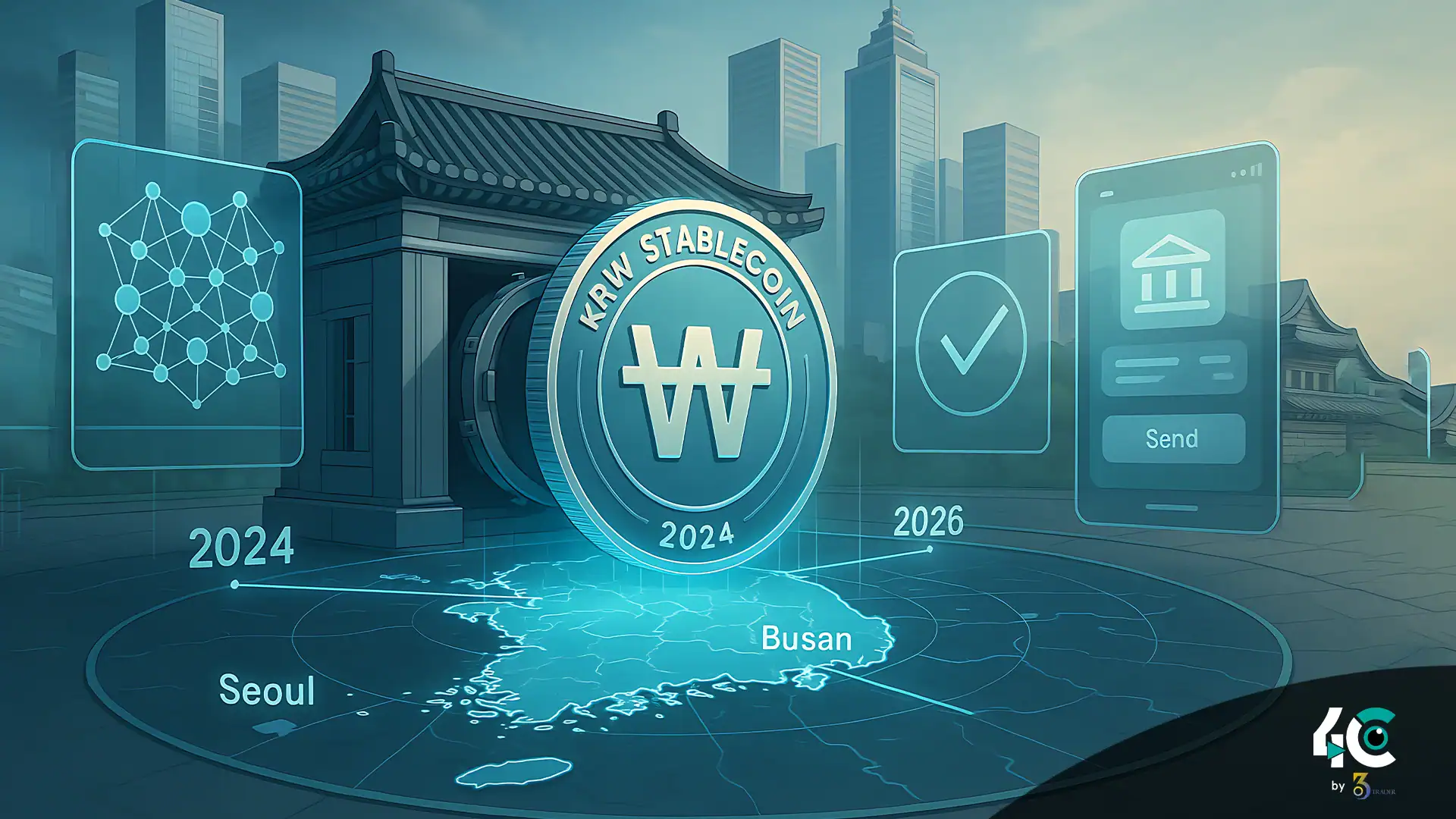South Korean Banks Collaborate on Stablecoin Launch
In late 2025 and early 2026, a stablecoin pegged to the won is intended to be launched by the eight major South Korean commercial banks. According to the banking consortium—KB Kookmin, Shinhan, Woori, NongHyup, Industrial Bank of Korea, Suhyup, Citibank Korea, and Standard Chartered Korea. They are looking forward to financial independence in the digital age.
These companies want to create a domestic alternative to U.S. dollar-pegged stablecoins like USDT and USDC that dominate over 99% of the $239 billion stablecoin market.
Two-Track Model to Ensure Trust and Flexibility
This is becoming more of an issue as dollar-based tokens increase; there is a worry that it could undercut the influence of the won, which is the local currency of Korea, both locally and globally. Regulators and financial institutions in South Korea have been urged to take action as the usage of foreign stablecoins rises.
In order to gain public trust and regulatory approval, the stablecoin will likely follow one of the two models currently being reviewed:
- Escrow-Based Model: A trust-based structure where customer money will be offered in escrow.
- Deposit-Linked Model: Linking the digital tokens directly to on-balance-sheet deposits.
The OBDIA is coordinating this dual-model approach, supported by the Korea Financial Telecommunications and Clearings Institute (KFTC), operator of the nation’s interbank payment system.
Regulators Take a Cautious but Supportive Stance
The Bank of Korea has been cautious in supporting the stablecoin effort. According to the central bank, which warned of a rush, Senior Deputy Governor Ryoo Sang-dae said banks—not non-financial firms—should lead the rollout to maintain control and limit systemic risk.
According to the view of Governor Rhee Chang-yong, who is not against a won-based stablecoin, it could cause hurdles in foreign exchange management if poorly carried out.
A Strategic Push for Monetary Sovereignty
This project for digital currency will strengthen monetary sovereignty, which is being undertaken by South Korea and is backed by the bank. A new United States bill, known as the Digital Asset Basic Act, designed to regulate stablecoin and crypto, has just been introduced.
South Korea is now taking steps to enter the ring alongside Japan and the EU, who already rolled out their state-backed digital currencies. In the event of success, the won-pegged stablecoin could emerge as an essential payment tool across a range of sectors such as:
- Interbank settlements
- K-Pop merchandise
- Remittances
It may also impact the design roadmap for the country’s central bank digital currency (CBDC).
United for Financial Sovereignty
South Korea’s response to foreign currency pressures is bringing together all the major financial players around the same goal—digital financial sovereignty in stablecoin form.



























